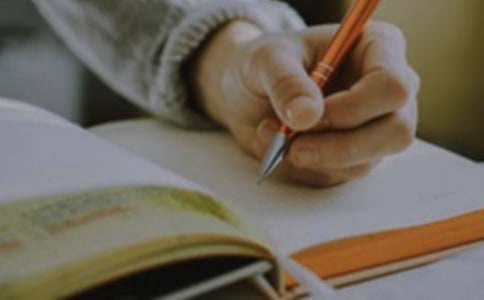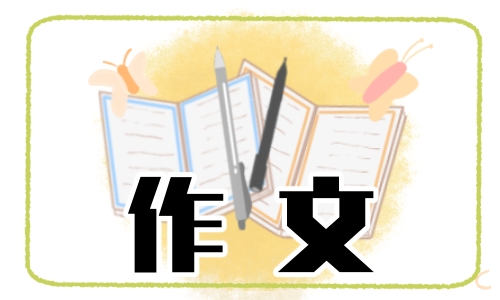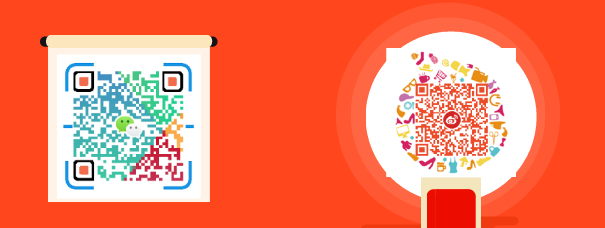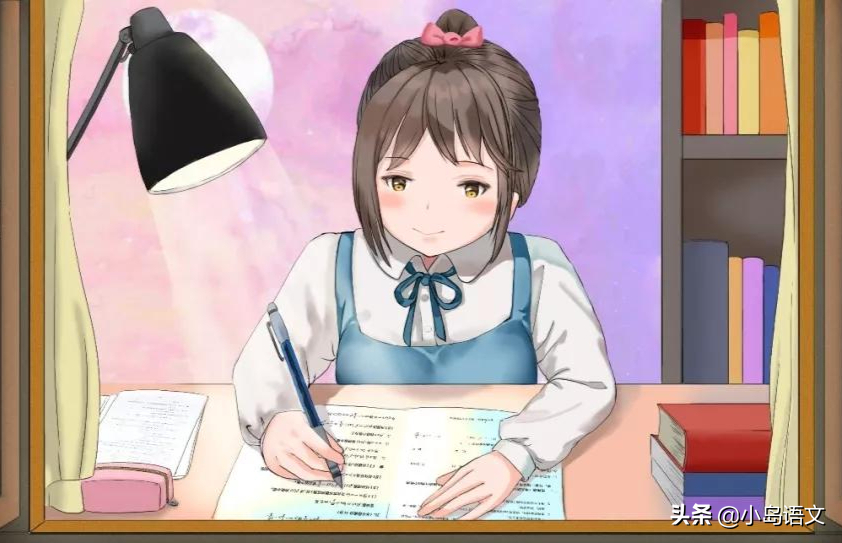關于人教版六年級上冊英語全冊知識點整理【三篇】
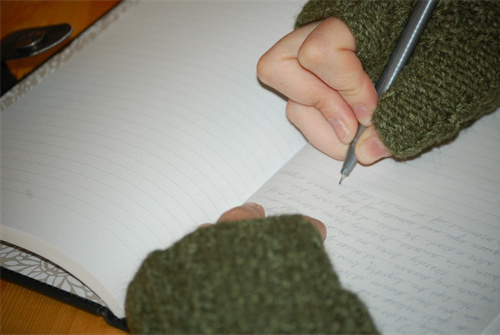
人教版六年級上冊英語全冊知識點整理1
堅持詞匯積累,打好英語基礎。小升初并沒有固定的詞匯量,但由于其出題方向趨向中考方向,小升初英語考試中涉及的應掌握詞匯至少為中考大綱所要求的1600詞,而要求看懂的詞匯量則更大。詞匯乃是英語學習的根基,沒有大量詞匯做基礎,小升初英語考試很難取得高分。
全面學習語法,把握英語架構。小升初考試當中,語法為重點考查部分,單純考查語法的單項選擇題分值在15-30分左右,同時,在完形填空題,主觀題當中也會涉及到對語法知識的考查。六年級的英語學習不但要進行系統(tǒng)的語法學習,還應掌握語法題的應試解題技巧。
應試技巧訓練,掌握解題要點。小升初英語考試由于組織及形式的限制,對于學員短時間內的答題提出更高的要求,如何在混亂緊張的小升初英語考試中取得高分,對 于學員的解題技巧提出更高的要求。在六年級的學習中,需要通過對小升初真題及模擬題的專項訓練,掌握小升初英語考試解題技巧。
人教版六年級上冊英語全冊知識點整理2
Unit1 How can I get there? 我怎樣到達這里?
■重點單詞:
where哪里 how 怎樣 can能夠 near近的 ask 問 tell 告訴 far遠的 science科學 hospital 醫(yī)院 museum 博物館 postoffice 郵局 library圖書館 bookstore 書店
usually通常 sometimes有時候 often 經常 know知道 near旁邊 next to旁邊(比near更近) crossing 十字路口 turn left 向左轉 turn right 向右轉 go straight直走 in front of在…的前面 behind在...的后面
■重點句子:
1. How do you go to school? 你是怎樣去上學的?
2.where is the restaurant? 餐館在哪里?
3. Usually I go to school on foot. 我通常走路去上學。
4. Sometimes I go by bike. 有時候我騎自行車去。、
5. 問路之前,出于禮貌,我們要說“Excuse me”與后面的句子要用標點符號隔開。
6. Look at the traffic lights, remember the trafficrules. 看著交通燈,記住交通規(guī)則。
7. Stop at a red light. Wait at a yellow light. Go at agreen light. 紅燈停。黃燈等一等。綠燈行。
8. Red means stop, yellow means wait, green means go. 紅色的意思是停止,黃色的意思是等待,綠色的意思是通行。
9. How can I get to the park? 我該怎樣到達公園呢?
10. You can go by the No. 15 bus. 你可以坐15路公交車去。
■重點知識:
1. 坐某種交通工具用by,例如:by bike, by train。而走路用 “on” 例如on foot.
2. 國家名字,地方名字第一個字母要大些:例如:Canada加拿大, China中國, America美國, England英國, Australia澳大利亞
3. 頻度副詞是表示做的次數(shù)多少的詞語。從多到少依次排列為:always總是,usually通常,often經常,sometimes有時候,never從不。頻度副詞可以放在句首,也可以放在人稱后面。例如:Usually I go to school by bus. = I usually go to school bybus.
4. near近的,far遠的。這兩個詞是一對反義詞。注意:not near= far, not far = near.
5. 時間前面用at. 例如:在三點鐘:at 3 o’ clock.
6. 交通燈traffic lights,交通規(guī)則:traffic rules。這大部分的國家都是靠右行駛的:drivers drive on the right side of the road. 記住England and Australia,drivers drive on the left side ofthe road.英國和澳大利亞,司機是靠左行駛的。
7. on foot= walk, 都是走路的意思,但是用法不同,on foot用在句子末尾,而walk用法與go相同,可以代替go的位置。 例如:走路回家:walk home 走路去上學:walk to school 走路去上班 walk to work 走路去醫(yī)院walk to the hospital
Unit2 Ways to go to school 上學的方法
■重點單詞:
by bike騎自行車 by bus坐公車 by train坐火車 by plane坐飛機 byship坐輪船 by subway坐地鐵
by taxi 乘出租車 on foot= walk 走路
Excuse me打擾一下 please請 buy買 want to想要 a pair of一雙 get on上車 get off下車 turn left左轉 turn right右轉 am上午 pm下午 now現(xiàn)在 look for尋找 top停止 wait等待 get to到達 driver司機 must必須
■重點句子:
1. Let’s go to the nature park,讓我們一起去公園吧!
2. How do we get there?我們怎樣到達這里?By bus乘公交。
3. The park is over there,公園在那里。
4. Let’s go .我們一起出發(fā)吧!
5. Slow down and stop at a yellow light.黃燈等一等。
6. Stop and wait at a red light.紅燈停。
7. Go at a green light.綠燈行。
■重點知識:
1. Is there 開頭的問句怎么回答呢?例如:Is there a cinema near here? 只要把前兩個詞語的順序換一下就可以了,肯定回答是:Yes, there is. 否定:No, there isn’t.
2. buy 和 by的區(qū)別,這兩個詞語發(fā)音相同,但是意思完全不同,by:乘,坐 buy:買
3. 地點名詞前面一定要有the,例如:Where is the cinema?How can I get to the hospital?
4. 時間前面用at. 例如:在三點鐘:at 3 o’ clock.;一段時間前面用for,例如:三分鐘for 3 minutes. 星期前面用on,例如:on Monday, on Tuesday, on Wednesday,on Thursday, on Friday, on Saturday, on Sunday.
5.在表達第幾路公交車時,注意No. 的書寫,N要大寫,后面別少了一點!!!
6.在哪里上下車,在哪里左右轉,都用介詞at,例如:Get on/ off at the cinema. 在電影院的地方上下車。 Turn left/ right at the bookstore. 在書店的地方左右轉。
7. by the No. 12 bus= take the No. 12 bus. 坐12路公交車
Unit3 What are you going to do? 你將要做什么?
■重點單詞:
take a trip旅行 read a magazine讀一本雜志 go to the cinema去看電影 this morning今天上午 this afternoon今天下午 this evening今天晚上 next week下個星期 tomorrow明天 tonight今晚 busy忙碌的 go home回家 post card明信片 comic book漫畫書 newspaper報紙 dictionary字典 plant trees種樹
■重點句子:
1. What are you going to do on the weekend? 周末你將要做什么?
2. I’m going to visit my grandparents this weekend. 我將要去拜訪我的祖父母。
3. I’m going to have a busy weekend! 我將要度過一個忙碌的周末。
4.I’m going to the supermarket with my mother. 我將要和我媽媽去超市。
5. Where are you going this afternoon? 今天下午你將要去哪?
6. I’m going to the bookstore. 我將去書店。
7. What are you going to buy? 你將要買什么?
8. I’m going to buy a comic book. 我將要去買一本漫畫書。
9. When are you going? 你將什么時候去?
10. I’m going at 3 o’clock. 我將三點鐘去。
11.What are you going to be? I’m going to be a policeman. 你將要成為什么樣的人?我將要成為一名警察。
■重點知識:
1.時間往往放在句子的末尾。例如:What are you going to do this evening?
2.go to school去上學,go to work去上班, go to the cinema去看電影,go后面都要有to,但是要注意“回家”這個詞組是:go home,中間絕對沒有to。
3.with: 和,后面往往跟人。例如:I’m going to play footballwith my friends. 我將要和我的朋友一起去踢足球。
4.疑問詞:where:哪里(地點) what:什么(東西,事情或職業(yè)) when:什么時候(時間) how:怎么樣(交通工具) who:誰(人) why:為什么(答句中有because)
Unit4 I have a pen pal 我有一個筆友
■重點單詞:
pen pal筆友 riding a bike(ride)騎自行車 diving(dive)跳水 hobby愛好watch (watches)TV看電視 playing the pipa(play)彈琵琶
listening to music (listen )聽音樂drawing pictures (draw)畫畫 =painting (paint)
climbing mountains(climb)爬山 playing (play)sport 做運動
play basketball 打籃球 play football 踢足球live (lives) in Beijing居住在北京 go (goes) to work去上班 go (goes) to bed睡覺 go (goes) home回家 teach(teaches) English教英語 read (reads) newspapers讀報紙 go hiking 遠足 study Chinese 研究中文 cook Chinese food 做中國食物 do word puzzles 猜字謎
■重點句子:
1. What’s your hobby? 你的愛好是什么?=W h at is your hobby?
2. What are your hobbies? 你的愛好是什么?
3. I like reading stories.我喜歡看故事書。
4. He likes collecting stamps, too. 他也喜歡集郵。
5. Does she teach English? 她是教英語的嗎?Yes, she does. No, she doesn’t.
6.Do you like English ? Yes, Ido. No, I don’t.
7.My name is John.我是約翰。His name is Zhang Peng.他是張鵬。Her name is Amy.她是艾米。/
8. What are you doing? 你正在做什么?
I’m writing an email to mynew pen pal. 我正在給我的新筆友寫信。
■重點知識:
1. 愛好一定要加ing,同樣的,當看到like或者likes的時候,后面的動詞一定要加ing,例如:我喜歡游泳:I like swimming.
2. 當主語是he, she,it以及能用這三個詞代替的所有的詞我們叫做第三人稱單數(shù),后面的動詞要加s,例如:I like diving. He likes diving. She likesdiving. 人名一定是第三人稱單數(shù)。
3. Does開頭的問句回答只有兩個,肯定回答:Yes, she/ he/ it does. 否定回答:No, she/ he/ it doesn’t. 看到does,后面的動詞一定要用原形!!!
Unit5 What does he do?他是做什么的?(job職業(yè))
■重點單詞:
factory worker 工人 postman 郵遞員 businessman 商人 police officer 警察policeman男警察 policewoman女警察 fisherman 漁民 scientist 科學家 pilot飛行員 coach 教練singer歌手 writer作家 TV reporter電視臺記者 actor男演員 actress女演員 artist畫家 teacher老師 doctor醫(yī)生 nurse護士 driver司機 farmer農民 cleaner 清潔工 dancer舞者 football player z足球運動員
家庭成員單詞
father=dad 爸爸 mother 媽媽 sister 姐姐(妹妹) brother哥哥(弟弟)
aunt 阿姨(姑姑)uncle叔叔(舅舅)cousin表(堂)姐(妹)/哥(弟)
反義詞:
happy 快樂的——sad 悲傷的
■重點句子:
1. What does your mother do? 你媽媽是做什么的?
2. She is a TV reporter. 她是電視臺記者。
3. Where does she work? She works in a car company. 她在哪工作?她在汽車公司工作。
4. How does she go to work? She goes to work by bus. 她怎樣去工作?她坐公交車工作。
5. Is your father a postman ?你的爸爸是郵遞員嗎?Yes, he is . (是的,他是)No ,he isn’t.(不,他不是)
6.Where does she work?她在哪里工作?She works at a university. 她在大學工作。
7. H e is good at playingfootball. 他擅長踢足球。
8. If you like sports, you can be a coach.如果你喜歡運動,你就有可能成為一名教練。
■重點知識:
1. 在表達某人職業(yè)的時候別忘了在職業(yè)前面加a/ an. 當單詞首字母是元音字母(a,e,i,o,u)的時候,要用an。例如:She is an anctress.
2. What’s wrong? 怎么啦= what’s up ?
I’m ill. 我生病了。
重點短語:be afraid of… 害怕…….
Eg: I’m afraid of him.
beangry with sb… 生某人的氣 eg: I’m angry with mymother.
Unit6 How do you feel
■重點單詞和短語
angry生氣 afraid害怕 sad傷心 worried擔心 happy快樂
see a doctor看醫(yī)生 takea deep breath深呼吸 count to ten 數(shù)到make制作 check檢查 wear穿 a little worried有一點點擔心
be angry with sb…生某人的氣 beafraid of…害怕 do more exercise做更多的運動
wear warm clothes穿暖和的衣服 get some drinks拿一些飲料
have some popcorn 吃一些爆米花 chase the mice追趕老鼠
■按要求寫詞語
mice(單數(shù)) mouse can’t = can not don’t=do not should= shouldn’t
bad 壞的(反義詞)good ill(反義詞) healthy 健康的 sad悲傷的(反義詞) happy
■重點句型分析
1. They are afraid of him.我害怕他。
此句中beafraid of 意為“ 害怕某人”。
例如:I am afraid of my maths teacher. 我害怕我的數(shù)學老師。
2. The cat is angry with them.這只貓害怕他們。
此句中be angry with意為“ 對某人生氣”。
3. What’s wrong?=what’s up? 怎么啦? 出什么事了?
此句用于詢問對方有什么問題或有什么不順心的事情, 意為: 怎么啦? 出什么事了?
例如:A: What’s wrong, Jim? 吉姆,你怎么啦?
B: MaybeI am ill. 也許我病了。
4.He should see a doctor thismorning建議某人應該做某事的句型
此句中should為情態(tài)動詞,表示“應該,應當”。此句用來給別人提建議。例如:
He should work harder. 他應該更加努力。
You should help your mother with the housework. 你應該幫你母親做家務。
5. What are you doing?
此句是現(xiàn)在進行時態(tài)的特殊疑問句,其基本結構為:疑問詞+be+主語+其他?例如:
What is hedoing now?回答:He is swimming.
人教版六年級上冊英語全冊知識點整理3
(一)聽力部分
一.選出聽到的單詞:
( )1. a. nice b. nine c. fine
( )2. a. photo b. phone c. bowl
( )3. a. fridge b. first c. fruit
( )4. a. same b. name c. some
( )5. a. count b. old c. out
( )6. a. my b. may c. why
( )7. a. wash b. washing c. washer
( )8. a. Miss b. Mr c. Mrs
( )9. a. letter b. let c. little
( )10. a. long b. wrong c. song
二.選出聽到的句子:
( )1.a. How many buses are there in the street?
b. How many cars are there in the street?
c. How many bikes are there in the street?
( )2.a. What’s his sister’s name?
b. What’s her sister’s name?
c. What’s his brother’s name?
( ) 3. a. How old is Mary, Jane?
b. How old is Jane, Jack?
c. How old is Jack, Mary?
( )4. a. The reading room is Room 234.
b. The reading room is Room 324.
c. The reading room is Room 432.
( ) 5. a. There is a big dog under the tree.
b. There is a small bird in the tree.
c. There is a small cat under the table.
( )6.a. Are the boys in yellow your classmates?
b. Are the boys in yellow your friends?
c. Are the boys in yellow your brothers?
( )7. a. You’ve got three big books?
b. You’ve got two big boxes.
c. You’ve got twelve big books.
三.選擇正確的應答句:
( )1. a. I’m from China. b. I’m a Chinese teacher. c. I’m not Chinese.
( )2. a. I’m nine. b. I’m fine. c. I’m a pupil.
( )3. a. It’s in the book. b. They’re in the book. c. They are Japanese stamps.
( )4.a. Yes, there are. b. No, there isn"t. c. There are five.
( )5.a. I"m sorry. b. No, thanks. c. No, you can"t.
四.根據(jù)你所聽到的內容,判斷正誤。正確的用“T”表示,反之用“F”表示:
( )1. Tom is five.
( )2. There are some eggs on the table.
( )3. There are three apples and three oranges in the bowl.
( )4. There are some cakes on the plate.
( )5. Tom is very happy.
五.聽錄音,將下列句子按聽到的順序用數(shù)字編號:
( )Look, I"ve got a big bag.
( )Thanks.
( )Some fruits. Here"s an apple for you.
( )Nice to meet you, Tom.
( )Let me help you.
( )What"s in your bag, Tom?
( )Nice to meet you, too.
( )Thank you.
(二)筆試部分
一.正確抄寫下列句子:
is there a letter for me yes there is
____________________________________________
二.中英互譯:
1.在冰箱里_________________ 6. over there________________
2.洗手_____________________ 7. fruit bowl________________
3.英語老師的辦公室_________ 8.the girl in red______________
4.打乒乓___________________ 9. a letter for me_________________
5.擦窗_____________________ 10.soft and sweet________________
三.按要求改變詞形:
1. mother(口語)________2.clean(反義詞)__________
3. buses(單數(shù))____________4. they(所有格)________
5.are not(縮寫)____________6. let’s(完整形式)__________
7.lady(復數(shù))_____________ 8.two(同音詞)_________
9.right(反義詞)__________ 10.this(復數(shù))__________
四.選擇填空:
( )1)May ____ got a Chinese book.
a. is b. has c. have
( )2)This is Mr Li"s room. _____ room is clean.
a. He b. His c. The
( )3)____ any bags in the locker.
a. There are b. Is there c. There aren"t
( )4)____ , is this Park School?
a. Pardon b. Sorry c. Excuse me
( )5)I’m in _______ room.
a. he b. me c. our
( )6)A: Where"s John? B:____________.
a. He"s over there. b. Which one? c. Oh, she"s in the classroom.
( )7)There is a letter ______ your grandma.
a. in b. for c. to
( )8)How many ____ are there in the classroom?
a. boy b. girl c. girls and boys
( )9)A:_____ is your phone number? B: My phone number is 59811678.
a. Which b. What c. Who
( )10)A:_____ is your brother? B: He"s 20 years old.
a. What b. Who c. How old
( ) 11)Is there _______ paper in the desk?
a. some b. any c. a
( )12)Mary has got _______ red apples.
a. some b. any c. an
( )13. He’s got _______ brother.
a. some b. a c. an
( ) 14. A: Have you got any books? B:_______________.
a. Yes, I have got. b. No, I haven’t. c. Yes, I am.
( ) 15. Can you do some washing?
a. Yes, please. b. Sure. c. Thank you.
五.把對話補充完整:
1. A: Oh, so (1) chocolates.
B: (2) (3) chocolates are there?
A: There are fifteen.
B: No, you"re not (4) . There are fourteen.
A: I"m sorry.
B: Let"s (5) them (6) .
A: OK. One (7) you and one for me...
2.A: Mum, (8) hungry. (9) there any eggs in the fridge?
B: Yes, there are some.
A: (10) I (11) one, please?
B: Yes. But go and (12) your hands first.
A: O.K. Mum.
六.閱讀短文,然后做是非題:
Tom and John are good friends. On Sunday they are in John"s room. John"s room is very clean and tidy. There are two windows in his room. Near the window there is a desk. On the desk there is an ink bottle, a lamp and some books. Beside the desk there is a bed. On the wall there is a phone of John"s family.
True (T) or False (F):
( )1)Tom and Jane are friends.
( )2)John"s room is clean but not tidy.
( )3)There are no windows in John"s room.
( )4)There is a chair and a table in John"s room.
( )5)A lamp and some books are on the desk.
( )6)There is a photo of John"s family in the room.



